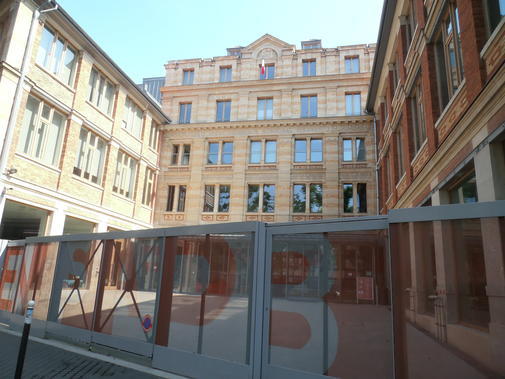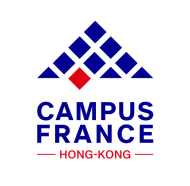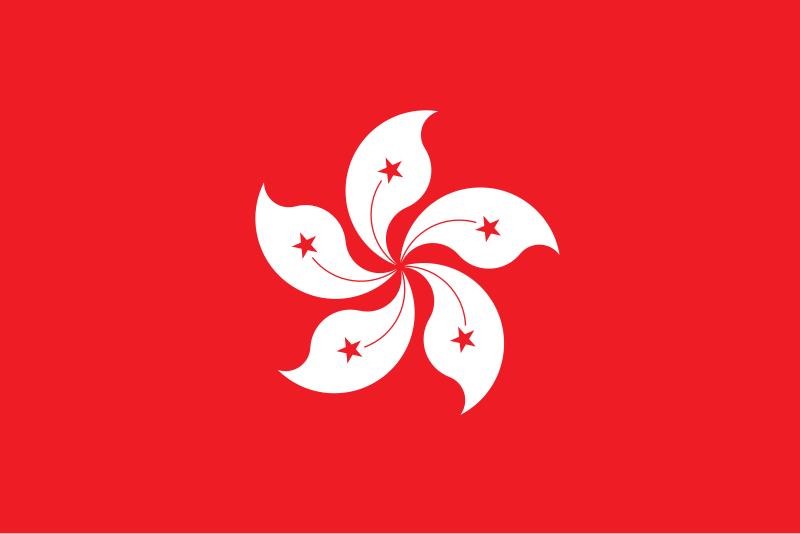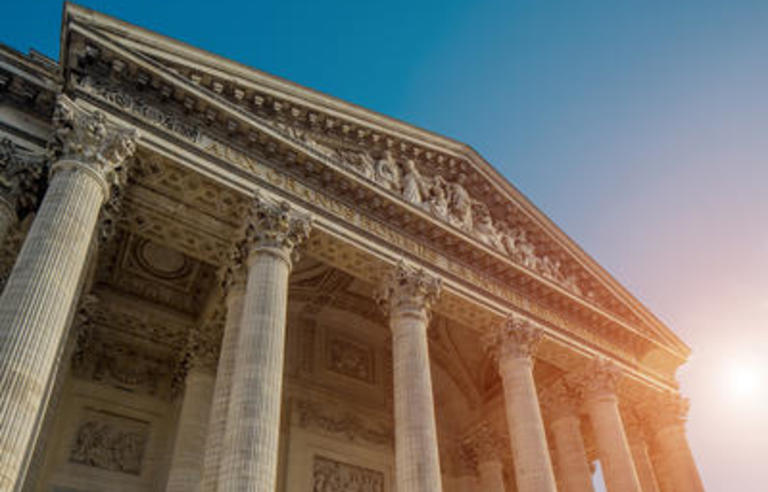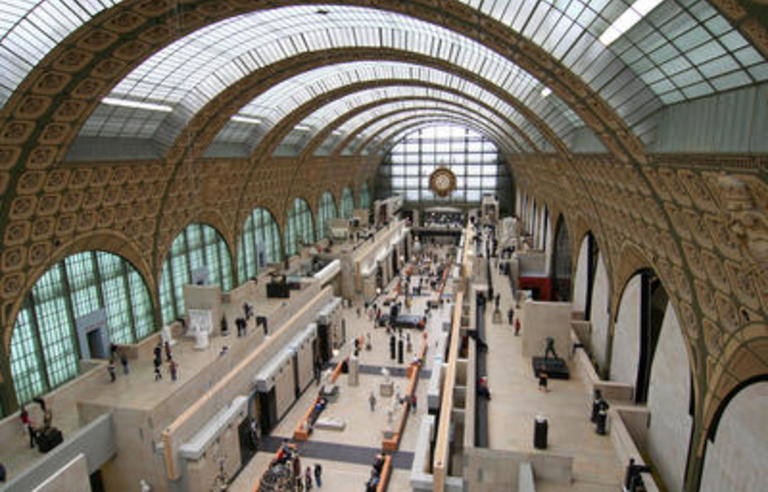The different types of institutes of higher education in France
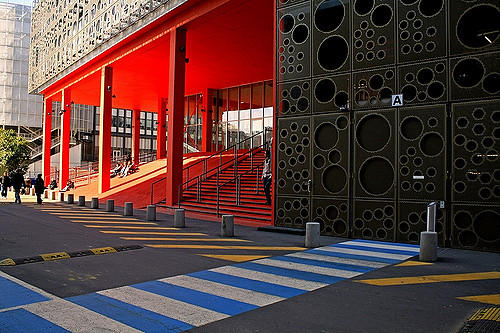
In France, there are more than 3,500 public and private institutes of higher education. The French higher education system is renowned for its comprehensive and flexible structure, offering numerous paths for students to pursue higher education.
The Universities: leading research and innovation force
France has over 70 public universities located all around France, offering a wide range of programmes in all fields of study. Financed by the French state, these universities provide bachelor's, master's and doctoral degrees and are known not only for their low tuition fees, but also outstanding research. As leading sites for research and the teaching of fundamental sciences, the universities ensure that education programmes incorporate advances in knowledge and technology.
In France, there are more than 100,000 scholars and scientists providing research training in liaison with some 1,200 research laboratories.

Universities receive 75% of international students who choose for their post-secondary education.
If you want to consult the list of public universities in France, visit this link from the Ministry of Higher Education and Research: click here.
The Grandes Écoles: the French culture of excellence
A grande école is a specialised, top-level and elite education institutions in France and also in other French-speaking countries. These prestigious institutions are often smaller in structure, and are more specialised than public universities. Grandes Écoles focus on specific fields such as engineering, architecture, business, political science and public administration. Admission to these schools is highly competitive, usually through rigorous entrance examination through these two paths: a) doing a traditional, two-year preparatory class Classe préparatoire, or b) direct entry after obtaining excellent examination results in the French high-school public examination Baccalauréat.
Nowadays, many grandes écoles offer admission to international students based on the strengths of the applicant's academic and extra-curricular achievements. 20% of foreign students are enrolled in a programme in the Grandes Ecoles. Écoles Normales Supérieures (ENS - Institutes of Advanced Education), Instituts d’Etudes Politiques (IEP - Political Science Institutes), engineering schools, business and management schools, veterinary schools and a few others, these Grandes Ecoles are public and private institutes of higher education recognised by the State. They confer degrees for 5 years of undergraduate studies, and some award the title of Master. Much of the training is provided in English.
Types of Grande École
Engineering schools
There are more than 200 public and private schools of engineering. These schools confer the Titre d'ingénieur, a venerable French degree that is equivalent to the European master.
Business and Management
France is home to several top-ranked business schools, such as HEC Paris, Emlyon Business School, INSEAD, and ESSEC. French business schools have strong ties with companies, facilitating internships and job placements. Most of these schools are private - tuition fees range from 5000 EUR to 15 000 EUR per year.
Political science & Public administration
The very famous Sciences Po Paris and INSP (formally known as the ENA) lie within the category of Grande École as well, offering courses in economics, law and political science
Vocation Education
There are three main types of vocational education in France, namely:
- Instituts Universitaires de Technologie (IUTs): IUTs offer three-year programmes that focus on practical skills. They belong to part of the university system.
- Brevet de Technicien Supérieur (BTS): The BTS is a 2-year French national post-secondary diploma in 88 specialty fields (plastic arts, industry, manufacturing, and services) that has been harmonised with the European LMD (Licence, Master, Doctorat) degree ladder. At the end of a BTS, students will be offered 120 ECTs. Most BTS programmes are offered in the post-secondary technical section of the French lycées, public or private. Upon graduation, students will assume specialised technical functions. For a list of BTS specialisations, click here (this page is in French).
- 16 additional specialisations in agriculture and food science lead to the award of a BTSA, a post-secondary technical certificate in agriculture.
- Licence professionnelle: Right after completing a BTS, students can consider enter directly into the job market or may elect to spend an additional year to obtain a licence professionnelle, which is a national diploma. The programme is offered in universities and their affiliated IUTs (Institut universitaire de technologie) that offer the BUT track in 24 specialisations. Practical internships, guests from the professional world and a well-equipped field knowledge make licence professionnelle programmes one of the best options for students opting for a vocational education.
- 173 different programmes are offered in a wide range of sectors: agriculture, business, manufacturing, management, services, etc.
- France's 108 IUTs : https://www.iut.fr/
Schools of art and applied arts
In France, there are two main types of public school of art:
- Écoles supérieures d'art et de design (ESAD): 45 public post-secondary schools of art and design fall under the joint oversight of the Ministry of Culture and the Ministry of Education. List of public post-secondary schools of art and design: https://andea.fr/
- Four highly-reputable public schools of art are directly overseen by the Ministry of Higher Education: Boulle, Olivier de Serres, Duperré and Estienne. They confer national degrees in graphic design, spatial design, fashion and arts and crafts.
- Écoles supérieures d'arts appliqués publiques: This type of school prepares graduates for careers in practical, design-related fields: graphics, interior architecture, fashion, textiles, product design and crafts (textiles, jewelry, glass, ceramics, etc.). For the list of schools that fall under this category, refer to https://designetmetiersdart.fr/
Some private schools or schools that depend on Chambers of Commerce and Industry award their own degrees. Some are registered under the Répertoire National des Certifications Professionnelles (RNCP - National Repertoire of Professional Certifications). These institutes of higher education in art and applied arts are very selective, and enrollment is through analysis of the applicant's file, by competitive entry exam and / or interview. Applications may be filed online on the site Campus Art.
Specialised schools and institutes: specific programmes
Nearly 3,000 public and private institutes of higher education offer courses in specific sectors such as medicine, audio-visual, communication, journalism, fashion and design, agronomy, political science, etc.
These institutes confer degrees and certificates that may or may not be recognised by the State. Admission to these specialised schools and institutes is based on a competitive entry exam or the applicant's portfolio. Studies there generally last two to five years.
Here are some famous specialised schools:
- The Écoles Normales Supérieures (ENS): In France, there are 4 Écoles Normales Supérieures (in Paris, Lyon, Rennes and Paris-Saclay). Their mission is to prepare highly-competent teachers, scholars and researchers in the field of sciences and humanities. As a sidenote, successive generations of many modern intellectuals were schooled at the École Normale Supérieure de Paris!
- The École Nationale Vétérinaire (ENV): France has 4 national schools of veterinary medicine, located in Paris (Maison-Alfort), Lyon, Nantes, and Toulouse. Indeed, France was the first country where the teaching of veterinary medicine has become institutionalised, through the establishment of the first veterinary schools in the eighteenth century.
The national schools of architecture (ENSA)
The Ecoles Nationales Supérieures d’Architecture (ENSA - the national schools of architecture) form a network of 20 public schools overseen by both the Ministry of Culture and the Ministry of Higher Education, Research and Innovation. Two other institutes, the École Spéciale d’Architecture (Special School of Architecture) and the Institut National des Sciences Appliquées (National Institute of Applied Science) in Strasbourg, are part of the same network and confer equivalent degrees.
